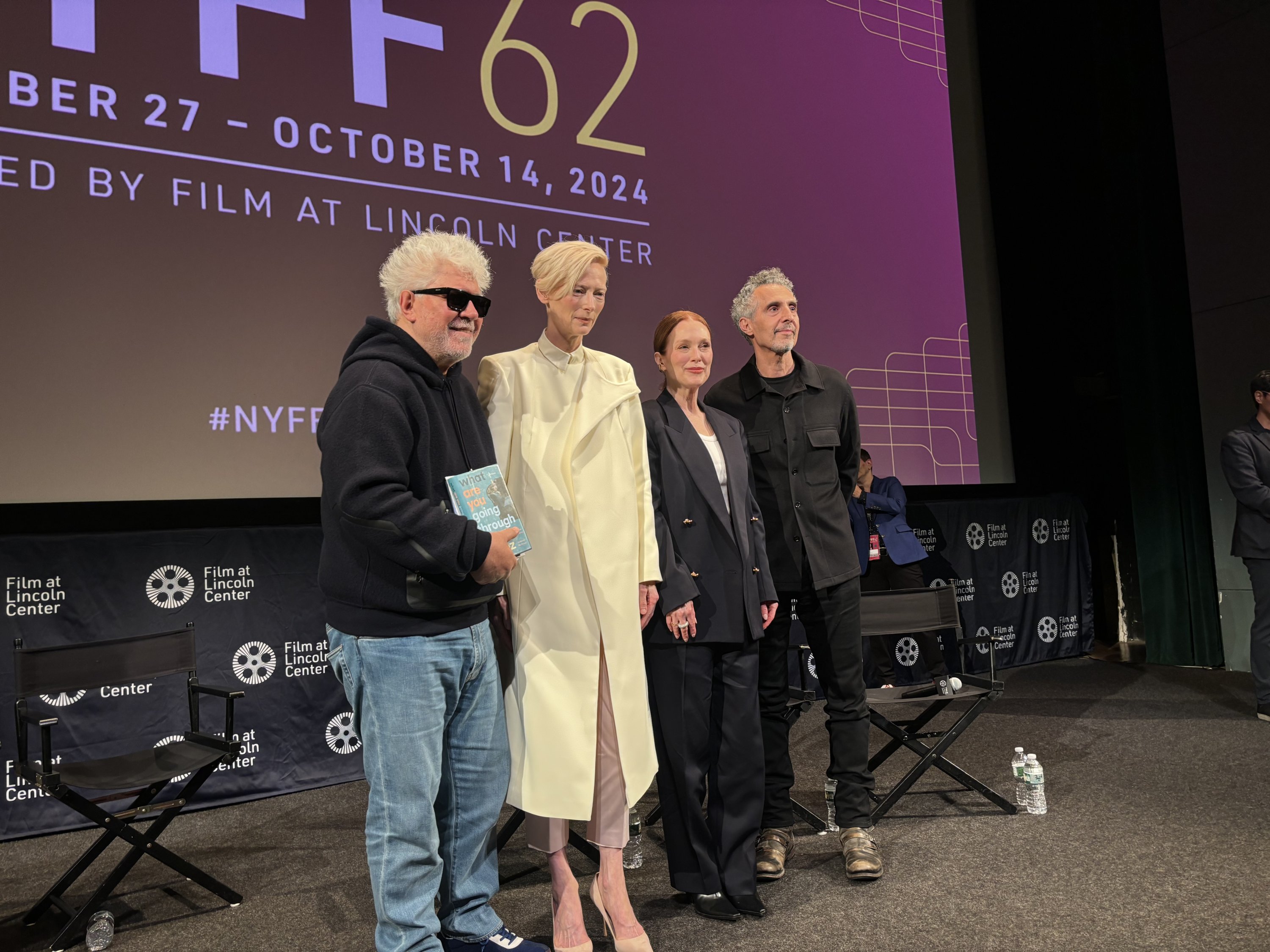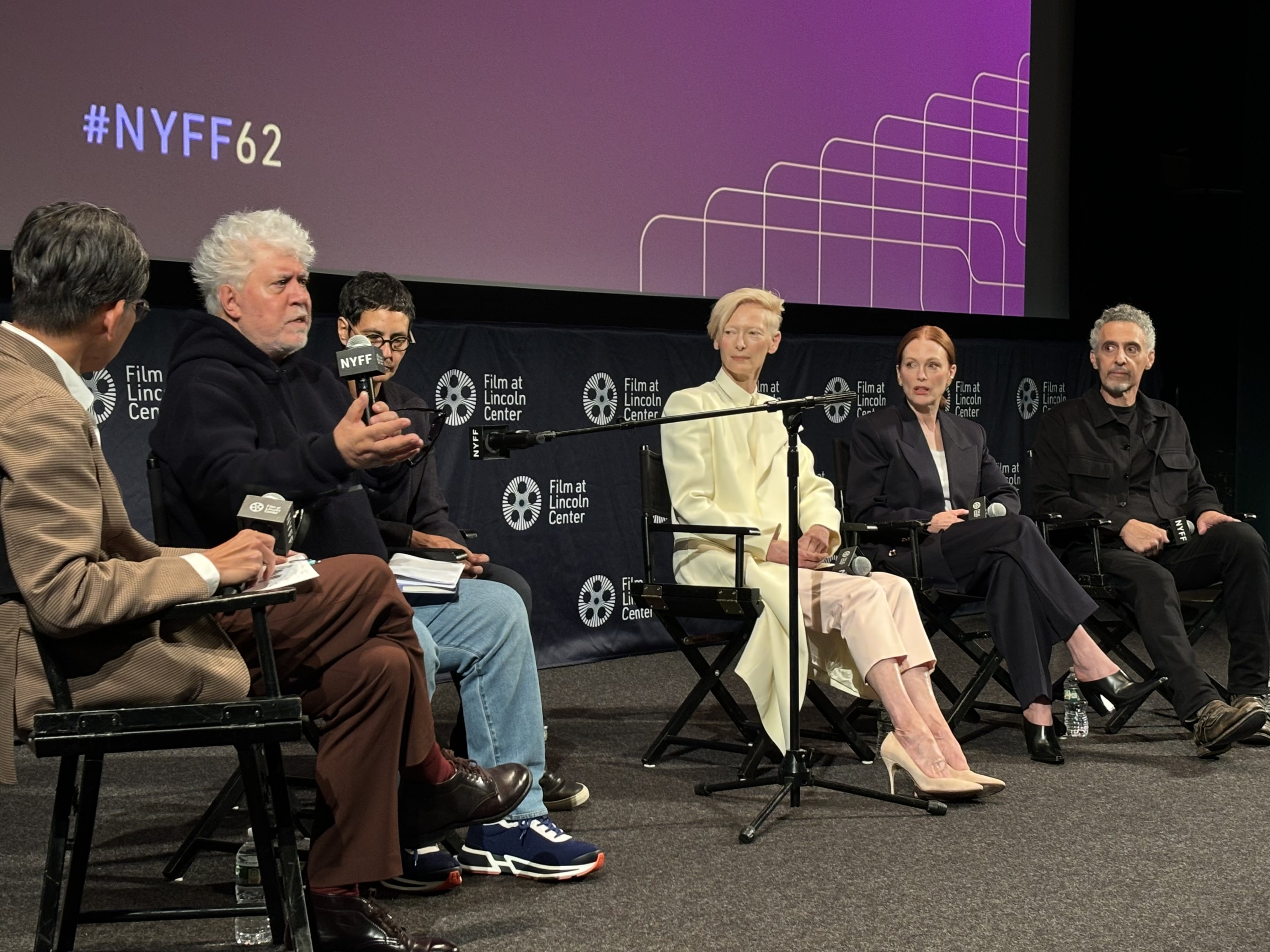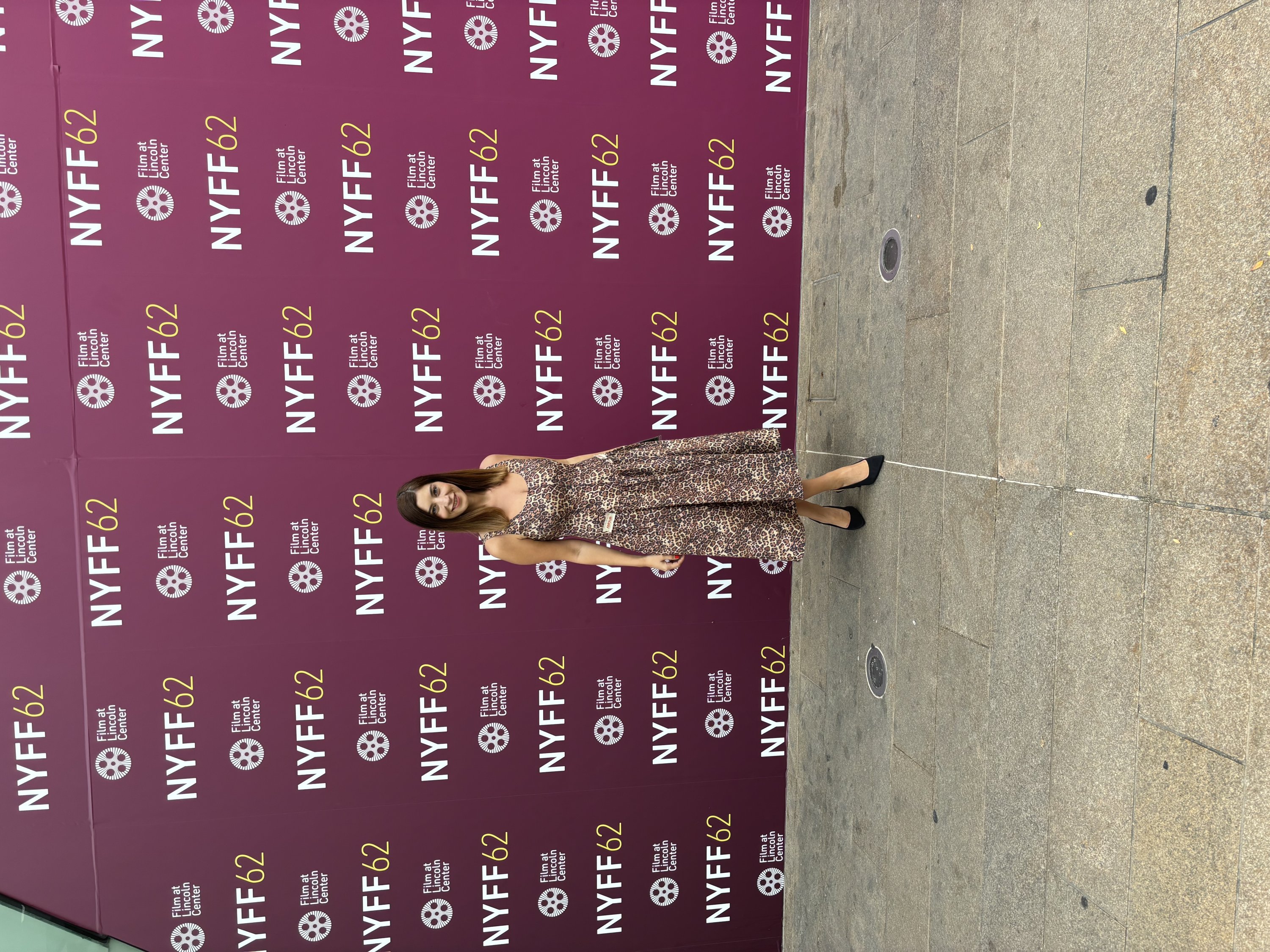© Turkuvaz Haberleşme ve Yayıncılık 2024
"The Room Next Door" was a highlight of the 62nd New York Film Festival. Oscar-winning Spanish writer-director Pedro Almodovar's masterful storytelling, coupled with compelling performances by Tilda Swinton, Julianne Moore and John Turturro, drew me into a world of melodrama that explores themes of mortality and human connection with depth and nuance. However, the Q&A session following the screening was disrupted by protesters voicing dissent regarding various social issues, adding an unexpected layer of tension to the event.
The festival kicked off in cinematic splendor on Friday, spotlighting Almodovar’s eagerly awaited film, "The Room Next Door." Known for his vibrant visual style and emotionally charged storytelling, Almodovar takes a bold step into new territory with this, his first English-language feature. Premiering at the Venice Film Festival and later headlining New York as its Centerpiece, the film has garnered significant attention, marking another notable chapter in Almodovar’s illustrious career.

Having the privilege of watching the movie firsthand, I was captivated by its intricate storytelling and the dynamic interplay of its characters. After the screening, I had the distinct pleasure of meeting Almodovar and gaining valuable insights into his creative process. He expressed a deep connection to New York and the festival, recalling how the city has long served as a bridge to American audiences. A particularly poignant moment for him was filming at Alice Tully Hall, a location featured in the film, which holds sentimental value. "It was very moving for me to shoot in a place that holds such dear memories," he reflected, "and where I hope to keep on treasuring them in the not-so-distant future."
At the U.S. premiere of "The Room Next Door," a group of protesters disrupted the event with chants supporting Palestine and Lebanon, in light of Israeli airstrikes on Beirut. Almodovar requested that the protesters be allowed to speak, with lead actress Tilda Swinton echoing his support. She described the protest as "a dignifying thing for this festival," adding that while such interruptions are uncomfortable, they are necessary. Drawing a connection to the film, she noted, "Syria is the room next door, Beirut, Gaza. Pedro’s film asks us not to look away." I was deeply impressed by Swinton's words; it’s crucial that we don’t turn away from the ongoing situations in Gaza and Beirut.

Set in New York, "The Room Next Door" tells the story of Martha, a war journalist played by Swinton and her estranged daughter, Ingrid, a bestselling author played by Moore. Their relationship, fractured by profound misunderstanding, is explored with Almodovar’s characteristic intensity, blending emotional realism with heightened drama. The narrative follows the two women as they attempt to reconnect after years of separation, wrestling with the pain of old wounds while navigating the complexities of their current lives.
For Almodovar, the film is deeply personal. He describes it as a story "about a very imperfect mother and her resentful daughter, who live separate lives because of a profound misunderstanding." This theme of family conflict, laden with bitterness and longing, is familiar territory for the director. However, setting this drama against the backdrop of New York and directing in English adds a new dimension to his exploration of human frailty.

The film’s selection as the Centerpiece of the New York Film Festival reflects not only the significance of Almodovar’s work but also the festival’s recognition of his unique ability to capture the zeitgeist. Dennis Lim, artistic director of NYFF, praised the film as "the work of an artist at the height of his powers: a wise, exquisitely acted, achingly beautiful film that feels perfectly calibrated to this moment." With its all-star cast and the emotional depth we’ve come to expect from Almodovar, "The Room Next Door" seems poised to resonate with both longtime fans and new audiences alike.
Almodovar has consistently challenged conventions throughout his career, and with "The Room Next Door," he showcases his ongoing evolution as a filmmaker, reminding us that even after decades in the industry, he still has the power to surprise. Although this film marks his first foray into English-language cinema, it remains deeply rooted in his signature themes of flawed family dynamics, emotional complexity and the profound search for connection.
